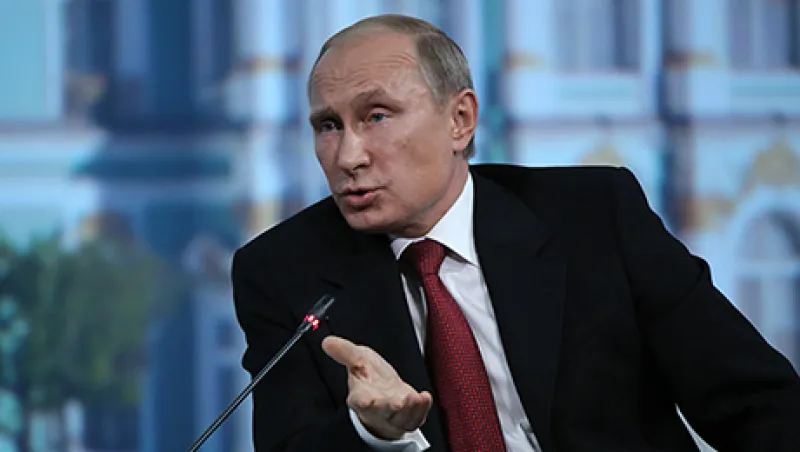
Vladimir Putin, Russia's president, speaks during the plenary session of the St. Petersburg International Economic Forum (SPIEF) in Saint Petersburg, Russia, on Friday, May 23, 2014. SPIEF is an annual international conference dedicated to economic and business issues which takes place at the Lenexpo exhibition center May 22-24. Photographer: Andrey Rudakov/Bloomberg *** Local Caption *** Vladimir Putin
Andrey Rudakov/Bloomberg

